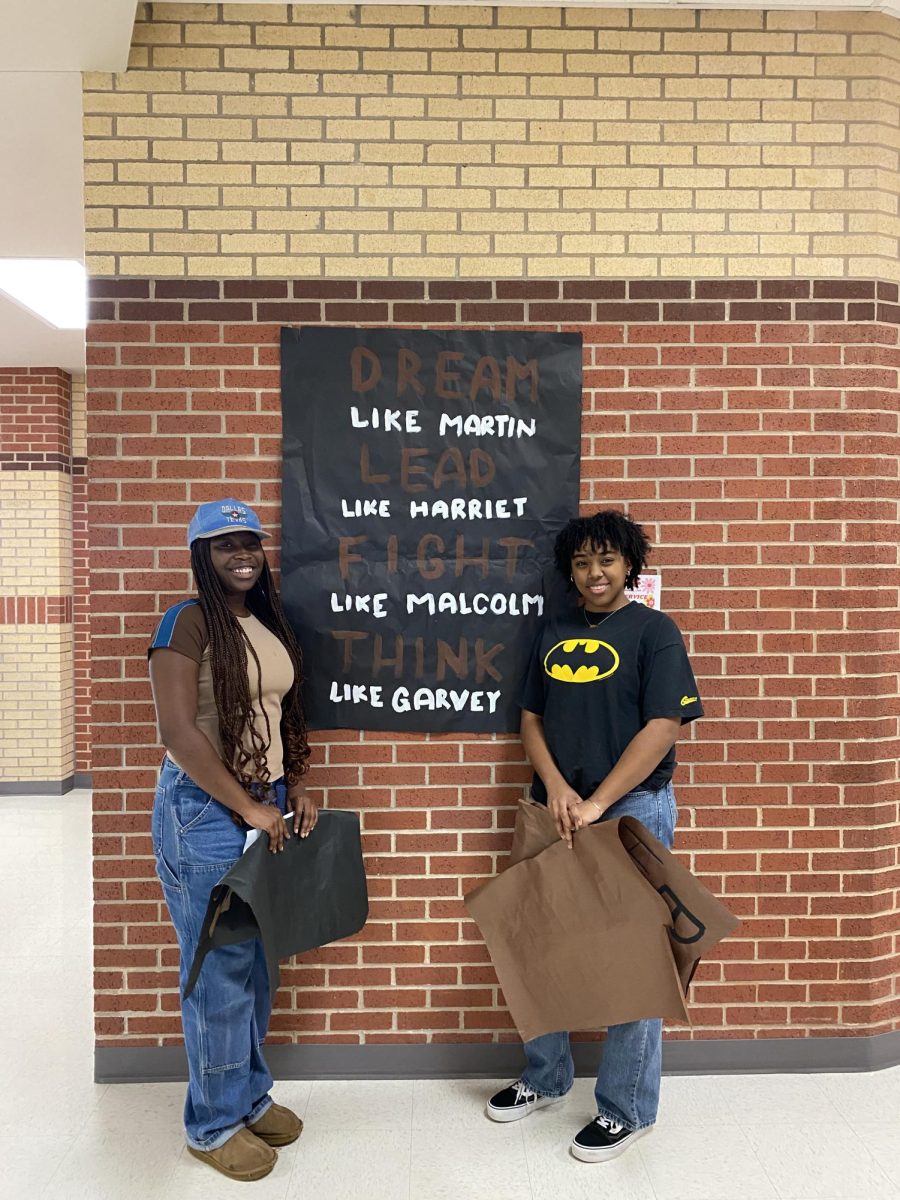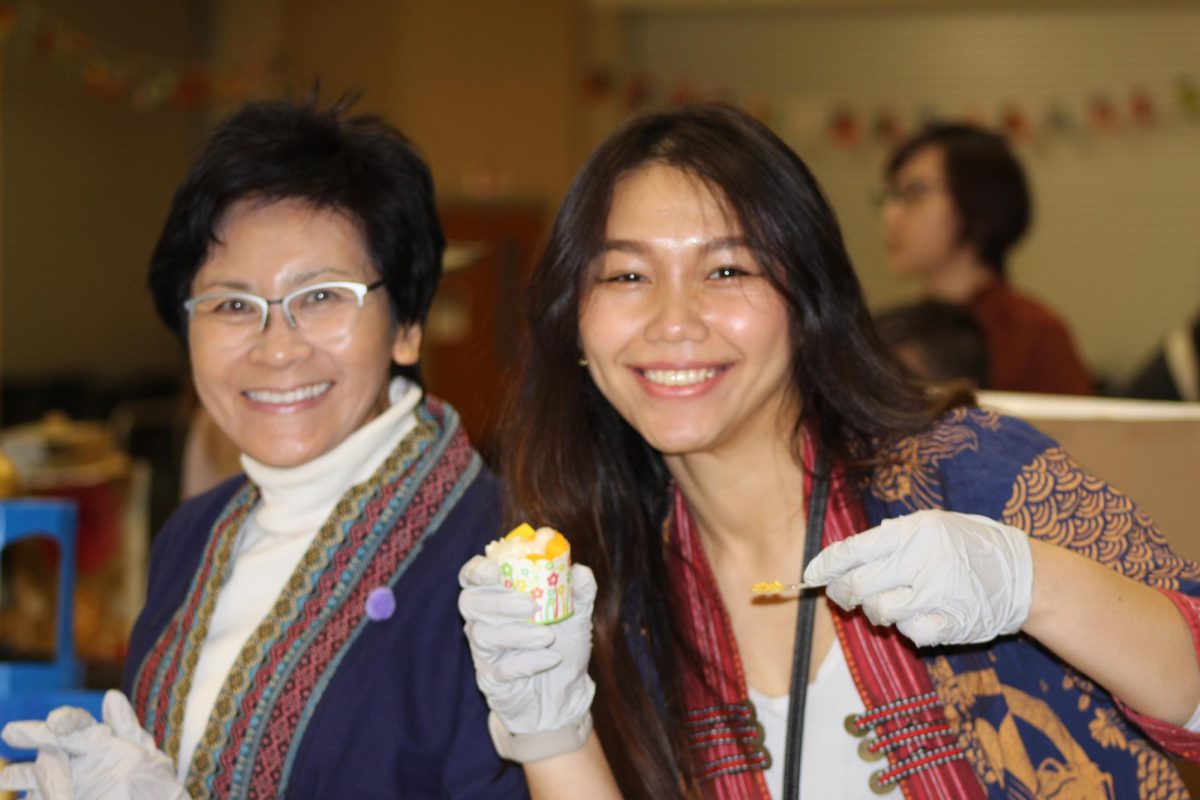On February 1st, 2024, seniors Sarah Omobogie and Jelai Johnson lined Lovejoy High School’s halls with posters commemorating the start of Black History Month. The posters promoted ideas of equality, motivation, and unity. One sign reads, “Dream like Martin, Lead like Harriet, Fight like Malcolm, Think like Garvey,” referring to influential African American activists. Omobogie and Johnson did not act alone, the posters were a collaborative effort from the Black Student Union, or BSU, a student-led club at LHS.
“Having the opportunity to join clubs such as Black Student Union is extremely important, especially at schools like Lovejoy,” Johnson said. “With the lack of diversity and opportunities to learn more about other cultures, cultural clubs like Black Student Union provide a sense of community and understanding. A lot of people would be surprised at how many students join these clubs as opportunities to ‘get to understand their roots more’ or ‘make friends who are going through very similar experiences’ as them.” Omobogie added, “I think as a society being allowed to hear and share different perspectives will ultimately lead to growth.”
In 1986, February was officially recognized by Congress as Black History Month. The month can be defined as a time to “salute” Black History, however, the celebration holds varying significance depending on the person.
“For me, Black History Month is a symbolic celebration,” Johnson said. “It highlights culture, courage, strength, triumph, adversity, and unity. Black History Month is a time to reflect and appreciate those that came before us.”
Similarly to the significance of the month, the way in which Black History Month is celebrated varies; each celebration is unique.
“My family is a culmination of immigrants who originate from Nigeria, so in my household it [Black History Month] is not a prominent holiday, but we make sure to volunteer for black-owned organizations to try and help our community,” Omobogie said.
At first glance, Black History Month can be perceived as an exciting celebration of culture and heritage, however, the origins of the observance are not so simple. African Americans have, and continue, to face discrimination. Black History Month serves as a gentle reminder that racial equality progress has been made, but there’s still a lot more to go.
“I’d be lying if I said that my family has a huge celebration for Black History Month,” Johnson said. “Our truth is that we celebrate black history and achievements year round…partially because we have to. We’re constantly put in the position to think about how we’ve started and where we’re going as a community in this country. I think that Black History Month is a great time for those not put in the position to constantly think about things like that to focus on how black lives have impacted us and how much change still needs to happen.”






















